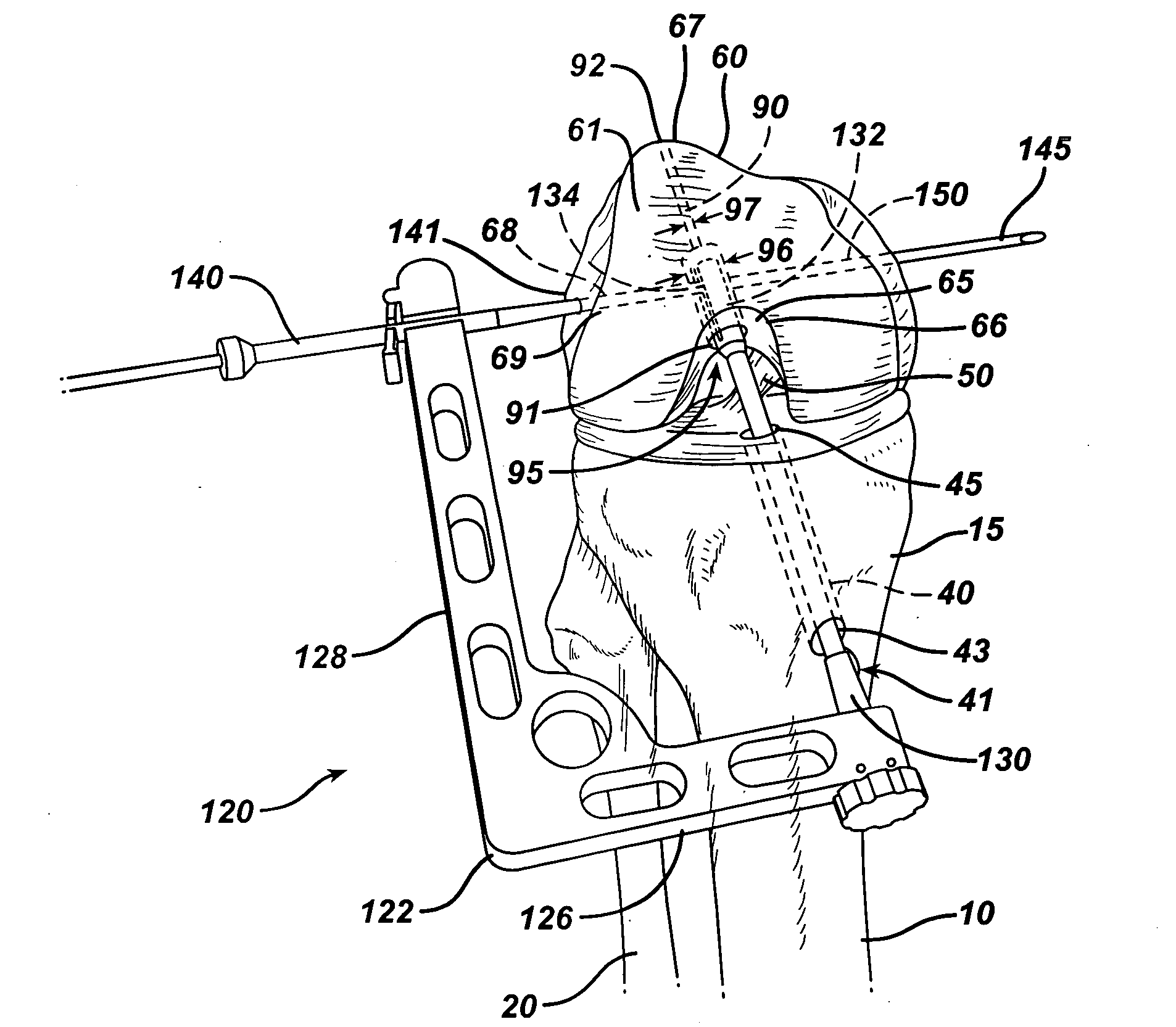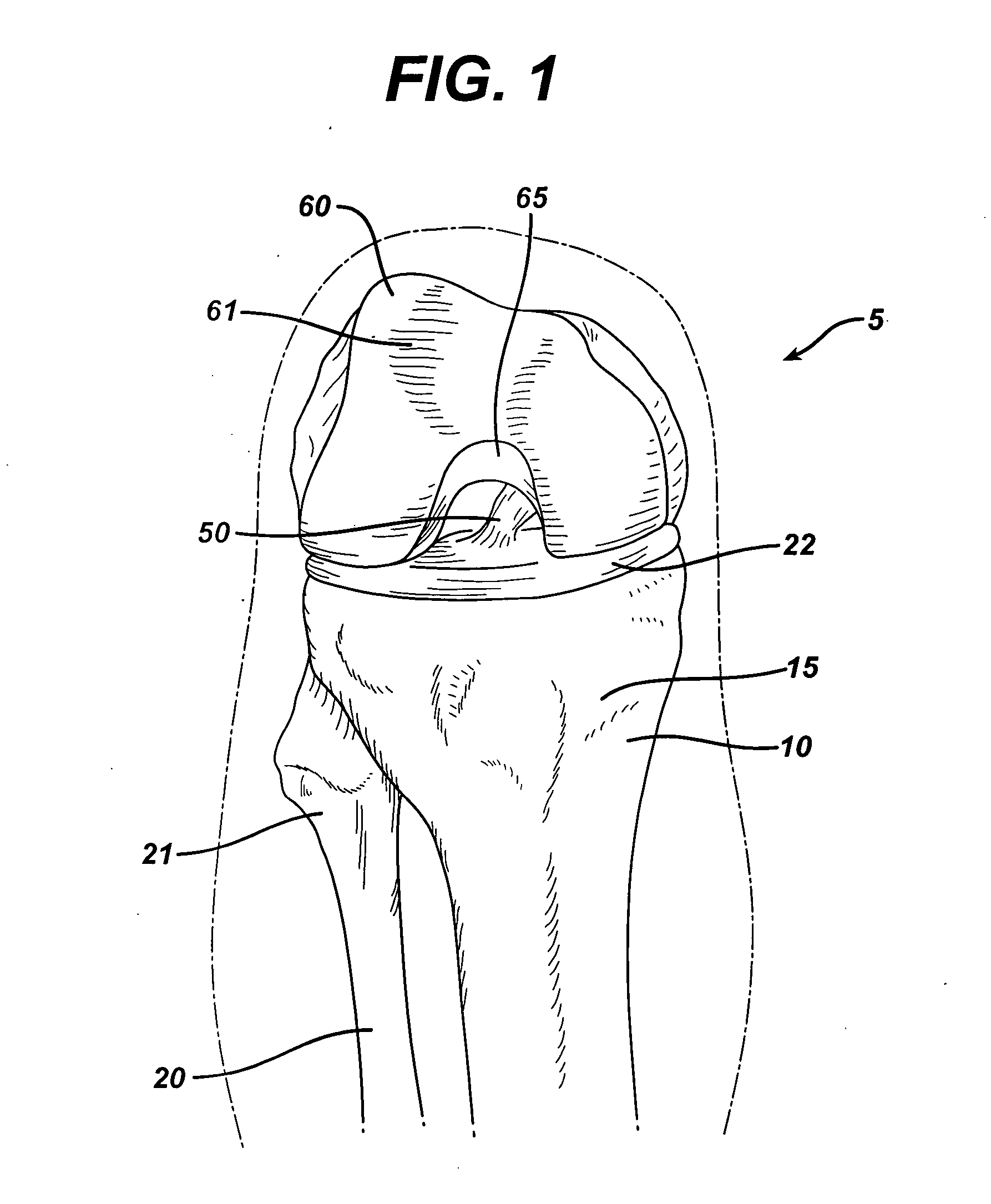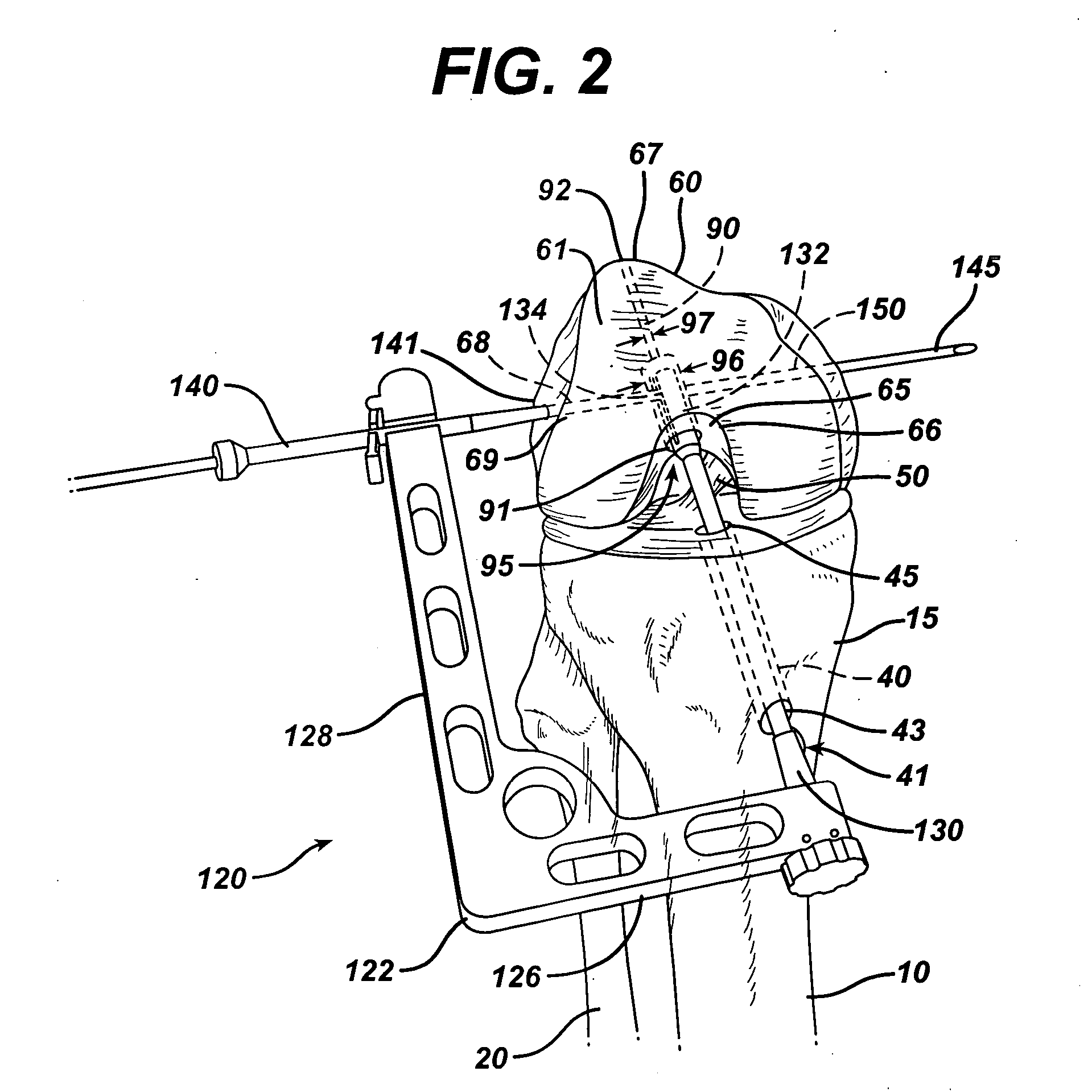Method of replacing an anterior cruciate ligament in the knee
a technology of anterior cruciate ligament and surgical procedure, which is applied in the direction of ligaments, prostheses, osteosynthesis devices, etc., can solve the problems of femoral and transverse tunnel interiors damage, grafts not being adequately secured, and the likelihood of a catastrophic failur
- Summary
- Abstract
- Description
- Claims
- Application Information
AI Technical Summary
Benefits of technology
Problems solved by technology
Method used
Image
Examples
Embodiment Construction
[0025] The terms “anterior cruciate ligament” and the acronym “ACL” are used interchangeably herein.
[0026] Referring now to FIGS. 1-15, the novel surgical method of the present invention of replacing a ruptured anterior cruciate ligament to reconstruct a knee is illustrated. FIG. 1 illustrates a typical patient's knee 5 prior to the onset of the surgical procedure. Illustrated is the top 15 of the tibia 10, the top 21 of the fibula 20, the bottom 61 of the femur 60, as well as the condylar notch 65. The posterior collateral ligament 50 is seen to be present in the knee 5. Also seen at the top 15 of the tibia 10 the meniscal cartilage 22.
[0027] As seen in FIG. 2, after preparing the patient's knee 5 using conventional arthroscopic surgical procedures, a tibial tunnel 40 is drilled in a conventional manner through the top 15 of the tibia 10 to create tibial tunnel 40. Tibial tunnel 40 has passage 41 having lower opening 43 and upper opening 45. The tibial tunnel 40 is drilled using ...
PUM
 Login to View More
Login to View More Abstract
Description
Claims
Application Information
 Login to View More
Login to View More - R&D
- Intellectual Property
- Life Sciences
- Materials
- Tech Scout
- Unparalleled Data Quality
- Higher Quality Content
- 60% Fewer Hallucinations
Browse by: Latest US Patents, China's latest patents, Technical Efficacy Thesaurus, Application Domain, Technology Topic, Popular Technical Reports.
© 2025 PatSnap. All rights reserved.Legal|Privacy policy|Modern Slavery Act Transparency Statement|Sitemap|About US| Contact US: help@patsnap.com



